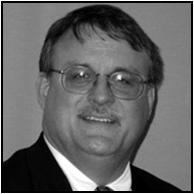 |
|
Vol. 11 No. 4 April 2009 |
Page 13 |
 |
|
Vol. 11 No. 4 April 2009 |
Page 13 |
Dean Kelly

Many small congregations, due to a lack of qualified men, do not have elders and deacons. It is not possible to put men in just to say that you have elders, when they are not qualified. I believe, even for those congregations, however, it is important to understand the organization that God intends for the local church. Philippians 1:1 speaks of the only biblical organization for the local church, and this local arrangement is the only biblical organization for the church universal. It speaks of bishops, deacons and members.
First Timothy 3:1-4 and Titus 1:5-9 give the spiritual and physical requirements for an elder or bishop. First Timothy 3:8-13 gives the qualifications for deacons. Evangelists or preachers are not listed in this organizational list. There are a few reasons for that. First of all, the evangelist is given the authority to preach the Word, but not to carry authority over a congregation except the responsibility to proclaim the message of God. Secondly, the preacher works under the authority of the elders like other members of the church. Remember that the elders of the church at Antioch laid their hands on Paul and Barnabas as they were about to leave on the first missionary journey. This expression of approval also showed their authority over Paul and Barnabas and the work upon which they were about to embark (Acts 13:3). This article is not about the qualifications of those who fill these positions, though that is, of course, important. Rather, I want to note some points about the authority that God has entrusted in the positions of elders and deacons.
The authority doesn’t lie in an elder, but in the eldership. Elders oversee the work of the church. They have true authority from God and are bound by the laws of God. Those who “rule well” are mentioned in 1 Timothy 5:17. It is implied in 1 Timothy 3:5 that if they cannot rule their children well, how can they rule the family of God? Hebrews 13:17 specifically refers to the “rule” of elders, and that they are responsible for the souls of those God has given them, something also stated by Paul in Acts 20:28. It is clear that an eldership has authority, though Peter makes it clear that they are not to have an improper attitude, but to set a proper example (1 Peter 5:1-4). However, the authority lies in the group of elders, not in an individual elder. The Scriptures are very clear that “elders” were appointed in each church (Acts 14:23; Titus 1:5), always plural, never singular. The elders are to make the decisions that affect the church, but they are not simply a finance committee. Like the apostles in Acts 6, they need to concentrate on the spiritual needs of the congregation, as they will give an answer for the souls of the members, as noted earlier. I fear that too often elderships have been made up of good business men, but not strong spiritual leaders.
The authority does not lie in the group of deacons, but the individual deacon. Like the first men set apart by the apostles to wait tables in Acts 6, the deacons serve under the elders, and are assigned to do certain tasks under their authority. I believe that elders need to choose good deacons and assign them tasks, give them the funds and authority to fulfill those tasks and then let them perform those tasks. Biblically, however, there is not a “board of deacons” that should meet and make decisions. While a wise eldership will consult the deacons, and other members for that matter, it is not the case that the deacons as a group carry any authority. Each individual deacon has a responsibility, and that is to be carried out under the authority of the elders.
I am afraid that too often even congregations of the church have fallen into this pit: The Elders are the financial committee doing the deacon’s jobs. The Deacons are either simply Jr. Elders, which is not biblical, or they do nothing. Preachers are administrators and entertainers, but not overly concerned with actually proclaiming the Word. Members are left floating with no true spiritual leadership from the elders, and spirituality suffers greatly.
I hope that we can all return to the pattern of the New Testament: Elders who are more concerned about the souls of the people than about finances; deacons who truly serve the congregation in the physical matters, under the eldership and preachers whose major concern is proclaiming the message of God, and spreading the Gospel of Jesus Christ. Then Philippians 1:1 would be true in our congregations.![]()